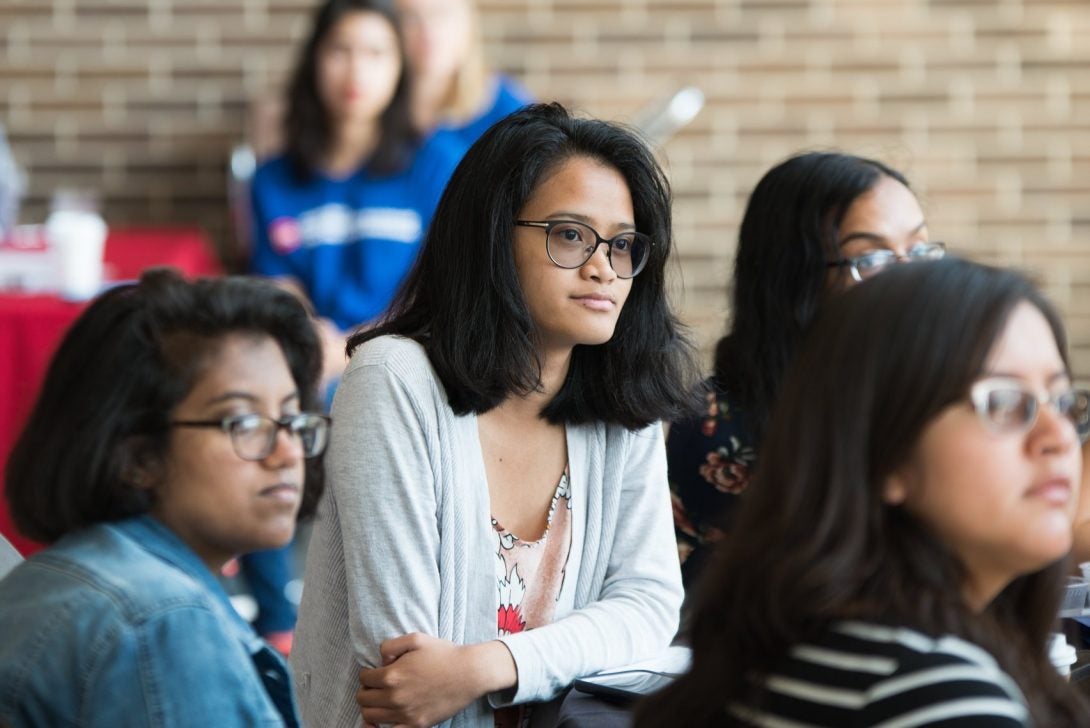Biomedical engineering student Mary Ashely Tenedor finds a minor in data science a perfect fit
Biomedical engineering student Mary Ashely Tenedor finds a minor in data science a perfect fit Heading link

Mary Ashley Tenedor, a biomedical engineering junior, is interested in a career in genome editing or protein modeling. These fields are well-suited for engineers like Tenedor who are equally as comfortable working in a lab as they are sitting in front of a computer, and for engineers who can crunch vast amounts of data.
That’s why Tenedor is supplementing their degree with a data science minor—an option that recently became available to UIC students with the development of a new data science major. The major draws on many of UIC’s colleges, including engineering, liberal arts and sciences, business, applied health sciences, and urban planning and public affairs.
Data science wasn’t on Tenedor’s mind when they first arrived at UIC and took Programming for Engineers with MatLab (CS109). “I really enjoyed it; I was able to create something and test it multiple times, which I don’t get to do in other engineering programs,” Tenedor said. “Feedback is immediate in computer science.”
Tenedor worked as a teaching assistant for a computer science course but said they missed writing code and working on new projects during that time. Unsure if a data science minor was the right fit, they then took Programming Design II (CS141).
“I used it as a test to see if I could handle a data science minor, on top of my major. I learned about data structures and got really excited,” Tenedor said. “It was a fun class and something I wanted to pursue.”
In the spring, Tenedor took part in a Sprinternship, a condensed, immersive paid internship, through UIC’s Break Through Tech program, which aims to increase diversity in technology.
They were placed at pharmaceutical giant Abbvie and worked to find new ways to implement automation in the company’s IT department.
Last summer, Tenedor had an internship with Fresenius Kabi, a medical device company. They worked as a systems engineer and were pleased to understand the software behind the devices they were working with.
“I had an issue with a device, and I was able to go into the code and see how the field error was impacting how the machine was running,” they said.
This semester, Tenedor is taking Data Structures (CS 251), in addition to their biomedical engineering courses, and hopes to take Creative Coding (CS427) soon.
“I will be able to code my own 3D models,” Tenedor said. “I know this will play a role in my future.”